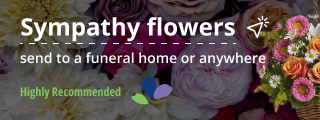Funeralocity’s founder, Ed Michael Reggie, joined the hosts of the On Your Side podcast to discuss the importance of literacy regarding end-of-life plans like funerals, cremation, memorials and add-on costs associated with these services.
The main issue Reggie spoke to is the fact that out of the 20,000 plus funeral homes in America, about 90% of them do not put their prices online, making it hard for consumers to get clear on how much a funeral will cost them. One shocking statistic shared on the episode: In Phoenix, Arizona a direct cremation (the most bare-bones option) costs around $700 at one funeral home, but up to $7,000 at another.
These kind of price disparages are a result of the lack of clarity required from funeral homes. As Reggie pointed out, we live in the age of Amazon – consumers shop online and are accustomed to seeing prices for products and services clearly displayed, so they can make informed decisions about where and who they want to give their business to.
Unfortunately, in the funeral industry, many families go to the same funeral home or cremation provider that others in their family or community have used, without shopping around for other prices and realizing they may be paying a lot more than what another business is offering down the street or across town.
New FTC Regulations for Funeral Homes
In the near future, the FTC is changing requirements to require funeral homes and cremations providers to list honest, transparent prices online, similar to the price transparency regulations imposed on hospitals a few years back – but as co-host Susan Campbell pointed out, implementing an industry-wide regulation like that isn’t easy, and could take years to become the norm. In other words, Funeralocity will continue to be the most reliable consumer resource across the board for getting honest prices online for funerals.
Funeralocity’s Tips for Saving on Funeral Costs
When asked for some industry insider tips for saving money on funerals, cremation, and memorial services, he didn’t disappoint:
- Call around to several funeral homes before committing. The current FTC regulations do require funeral homes to give concrete prices upfront when asked. So while prices might not be obvious online, if you’re willing to put in time and effort, you should be able to get quotes for services and products.
- Use Funeralocity as a source of truth. Funeralocity lists average prices by state, as well as pricing for individual funeral homes all in one place, so when you’re calling around to funeral homes or cremation providers, you have a benchmark for what to expect.
- Plan ahead if possible. A lot of the potential for predatory practices in the funeral industry stems from the fact that people are planning during their time of grieving, and likely don’t have the time or energy for extensive research or negotiation in an industry they have no knowledge of. If you or your loved ones are able to organize end-of-life plans ahead of time, there can be huge savings.
- Look into third-party sellers for add-ons. For products like caskets, flowers, or urns, consumers should know that you can buy from retailers outside of the funeral industry, like Costco, Sam’s Club, or Wal-Mart and avoid significant price markups from funeral homes.
- Don’t pay for an obituary. Ed Michael Reggie suggests that consumers avoid the add-on cost of publishing an obituary in the newspaper, and opt for free online obituaries from companies like Obituare. You can post a loved one’s obituary for free, and easily distribute it to anyone you want with a simple link.
- Don’t be afraid to negotiate. While some funeral homes or cremation providers are rigid, others are willing to hear out consumers. This is where research and knowledge from Funeralocity can greatly help – if you come to the table with knowledge about average prices and quotes from other businesses, the negotiating power is on your side.








